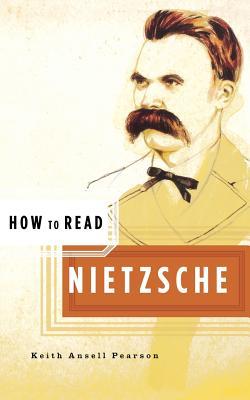
Nietzsche's thinking revolves around a new and striking concept of humanity--a humanity that has come to terms with the death of God and practices the art and science of living well, free of the need for metaphysical certainties and moral absolutes. How, then, are we to live? And what do we love?
Keith Ansell Pearson introduces the reader to Nietzsche's distinctive philosophical style and to the development of his thought. Through a series of close readings of Nietzsche's aphorisms he illuminates some of his best-known but often ill-understood ideas, including eternal recurrence and the superman, and he brings to light the challenging nature of Nietzsche's thinking on key topics such as beauty, truth, and memory. Extracts are taken from a range of Nietzsche's work, including Human, All Too Human; The Gay Science; Thus Spoke Zarathustra; and On the Genealogy of Morality.
Nietzsche's thinking revolves around a new and striking concept of humanity--a humanity that has come to terms with the death of God and practices the art and science of living well, free of the need for metaphysical certainties and moral absolutes. How, then, are we to live? And what do we love?
Keith Ansell Pearson introduces the reader to Nietzsche's distinctive philosophical style and to the development of his thought. Through a series of close readings of Nietzsche's aphorisms he illuminates some of his best-known but often ill-understood ideas, including eternal recurrence and the superman, and he brings to light the challenging nature of Nietzsche's thinking on key topics such as beauty, truth, and memory. Extracts are taken from a range of Nietzsche's work, including Human, All Too Human; The Gay Science; Thus Spoke Zarathustra; and On the Genealogy of Morality.
Paperback
$17.95